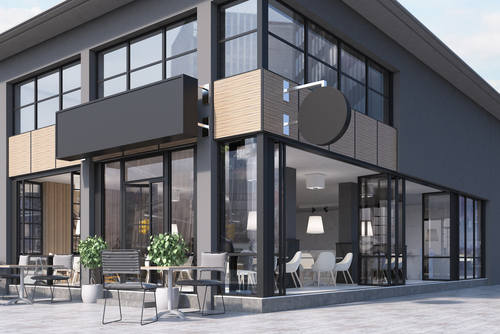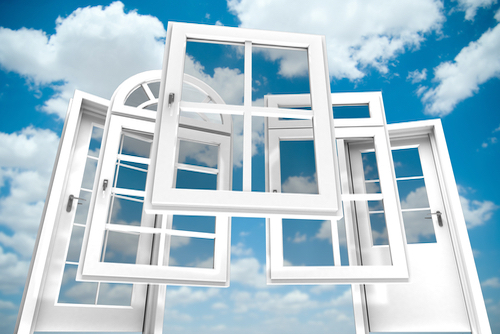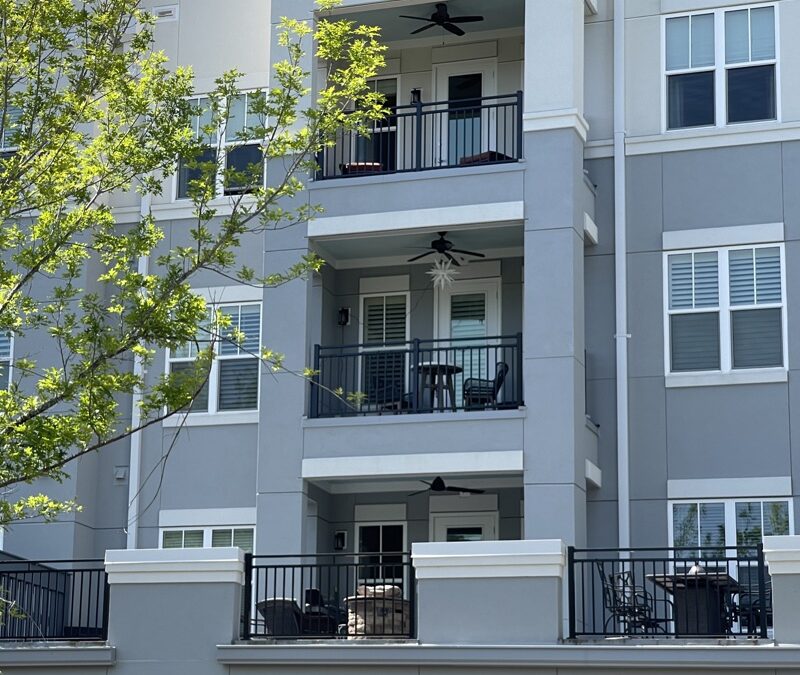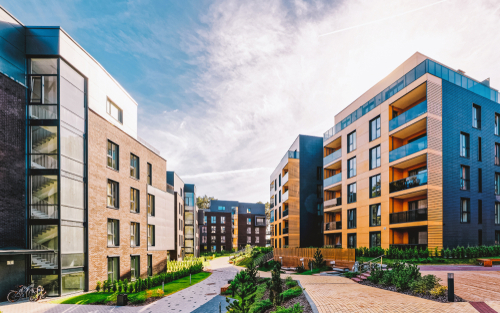Introduction to Commercial Windows and Doors
Commercial windows and doors are integral to any building’s architecture and functionality. They not only define the aesthetic appeal of a structure but also contribute significantly to its energy efficiency, security, and overall comfort. Commercial windows and doors differ from their residential counterparts in design, materials, and specifications, tailored to meet the unique demands of businesses, office buildings, retail spaces, and other commercial establishments.
Choosing the right supplier for commercial windows and doors is crucial for several reasons. First, the quality of materials and craftsmanship directly impacts the longevity and durability of these installations. Commercial settings often require windows and doors that can withstand heavy usage and harsh weather conditions, making quality non-negotiable. Secondly, the right supplier understands the importance of energy efficiency and offers products that can help reduce heating and cooling costs, which is vital for large commercial spaces. Energy-efficient windows and doors contribute to a more sustainable environment and offer significant cost savings over time.
Moreover, the aesthetic aspect cannot be overlooked. The right supplier will offer a range of styles and designs that can complement the architectural vision of any project, enhancing its overall appearance and appeal. Finally, compliance with local building codes and regulations is essential. A reputable supplier ensures that all products meet or exceed these requirements, providing peace of mind and avoiding potential legal issues.
In summary, selecting the right supplier for commercial windows and doors is a decision that affects not just the immediate look and feel of a building but its long-term functionality and compliance. It is a choice that demands careful consideration and research.
Understanding Your Project’s Needs and Design Requirements
When embarking on a construction or renovation project, understanding the specific needs and design requirements of your building is paramount. This understanding forms the foundation upon which all decisions regarding commercial windows and doors will be based. It involves a comprehensive assessment of the architectural style, functionality, climate considerations, energy efficiency requirements, and property security needs.
Assessing the Architectural Style and Functionality
The architectural style of your building plays a crucial role in determining the type of commercial windows and doors that will best complement its design. Whether your building has a modern, minimalist look, a traditional facade, or a unique avant-garde style, the windows and doors should enhance its character, not detract from it. Additionally, functionality is critical. For instance, a retail space may benefit from large, inviting windows that showcase products and attract customers. At the same time, an office building might prioritize natural light and ventilation to create a pleasant working environment.
Climate Considerations and Energy Efficiency Requirements
Climate plays a significant role in selecting the right commercial windows and doors. Buildings in colder regions require windows with high thermal insulation (high R-values) to retain heat. In contrast, those in warmer climates might need windows with low solar heat gain coefficients (SHGC) to minimize cooling costs. Energy efficiency is not just a matter of environmental responsibility; it’s also about economic sense. Efficient windows and doors can significantly reduce energy bills by maintaining a consistent indoor temperature, making them a crucial consideration for any commercial property.
Security Needs for Commercial Properties
Security is a paramount concern for commercial properties. Windows and doors are often seen as vulnerable entry points, making the choice of materials and design critical. Options such as tempered or laminated glass can offer enhanced resistance to break-ins, while advanced locking mechanisms can deter unauthorized access. In some cases, aesthetics and security must be balanced, ensuring that while the building remains secure, it also maintains an inviting atmosphere for customers or clients.
In conclusion, understanding your project’s needs and design requirements is a multifaceted process that carefully considers architectural style, functionality, climate, energy efficiency, and security. By addressing these aspects, you can ensure that your commercial windows and doors not only enhance the aesthetic appeal of your building but also contribute to its overall performance and safety.
Key Considerations When Choosing Commercial Windows and Doors
Selecting the right commercial windows and doors is a critical decision that impacts not only the aesthetic appeal of a building but also its energy efficiency, security, and maintenance requirements. Several key considerations must be considered, including frame material, glass type, window style, and security features. Each of these elements plays a vital role in ensuring that the chosen products meet the specific needs of a commercial project.
Frame Material
The choice of frame material for commercial windows and doors can significantly affect their longevity, maintenance needs, and aesthetic compatibility with the building’s design. The most common materials include vinyl, aluminum, wood, and fiberglass, each offering distinct advantages and disadvantages.
- Vinyl frames are known for their energy efficiency and low maintenance. They do not require painting or staining, but their color selection is limited, which might not suit all architectural styles.
- Aluminum frames offer durability and strength, making them suitable for large window designs. However, they are less energy-efficient than other materials unless they include a thermal break.
- Wood frames provide a classic, natural look that can enhance the aesthetic of traditional buildings. They require more maintenance to protect against weather and insect damage but offer excellent natural insulation.
- Fiberglass frames combine the best features of the other materials, offering durability, low maintenance, and energy efficiency. They can be painted to match any color scheme, making them versatile for various architectural styles.
Choosing the suitable frame material involves balancing the need for durability, maintenance, energy efficiency, and aesthetic appeal to match the building’s design and operational requirements.
Glass Type
The type of glass used in commercial windows and doors is another crucial consideration, particularly regarding energy efficiency and climate control. The U-value and R-value of glass indicate its insulation properties, with lower U-values and higher R-values being preferable for minimizing heat transfer. This is essential for maintaining comfortable indoor temperatures and reducing energy costs.
Low-E (low emissivity) coatings are applied to glass to reflect infrared light, keeping heat inside during the winter and outside during the summer. This coating also reduces UV light transmission, protecting interior furnishings from fading. Tinting can further enhance climate control by reducing glare and heat gain from direct sunlight, making it an excellent option for buildings in sunny climates.
Selecting the right glass type can significantly impact a building’s energy consumption and occupant comfort, making it a critical factor in decision-making.
Window Style
The style of commercial windows should complement the architectural design of the building while also providing the desired functionality. Different window styles offer various benefits:
- Fixed windows do not open but provide excellent insulation and are ideal for locations where ventilation is not a priority.
- Pivoting windows can open to allow for natural ventilation and are suitable for environments where air circulation is desired.
- Sliding, casement, and awning windows are other options that offer flexibility in design and functionality, allowing for easy operation and varying degrees of ventilation.
Choosing the right window style involves considering the building’s design, the need for natural light, and the desired level of ventilation.
Security Features
For commercial properties, security is a paramount concern. Windows and doors are potential entry points for intruders, so choosing security features is critical.
- Tempered or toughened glass is designed to break into tiny, blunt pieces, reducing the risk of injury and making it more difficult for intruders to gain entry.
- Laminated glass, which holds together when shattered, and security glass that can resist heavy impacts are excellent options for enhancing security.
Incorporating advanced locking mechanisms and considering the placement and accessibility of windows and doors can further enhance security measures.
In conclusion, selecting commercial windows and doors requires a comprehensive evaluation of frame materials, glass types, window styles, and security features. By carefully considering these elements, businesses can ensure that their properties are aesthetically pleasing, energy-efficient, secure, and suited to their needs.
Selecting the Right Contractor
Choosing the right contractor for installing commercial windows and doors is as crucial as selecting the materials. The right contractor ensures that your project is executed efficiently, within budget, and to the highest quality standards. Here are some tips for vetting window contractors and understanding the importance of comprehensive estimates and timelines.
Vetting Window Contractors:
- Check Credentials: Ensure the contractor is licensed, insured, and has a good standing in the industry. Certifications and memberships in professional associations can also be indicators of quality.
- Experience Matters: Look for contractors with extensive experience in commercial projects similar to yours. They should have a portfolio of completed projects and references you can contact.
- Reputation: Read reviews and ask for references. A contractor’s reputation among past clients strongly indicates their work ethic and quality.
Comprehensive Estimates and Timelines:
- Detailed Quotes: A reliable contractor provides a thorough estimate that breaks down the costs of materials, labor, and any additional fees. This transparency helps avoid unexpected expenses.
- Project Timeline: A precise timeline is essential for planning and operations. It should include start and completion dates, along with milestones for significant phases of the project.
Selecting the right contractor involves thorough research and due diligence. By focusing on these aspects, you can ensure a successful installation of commercial windows and doors that meet your project’s specific needs and quality standards.






